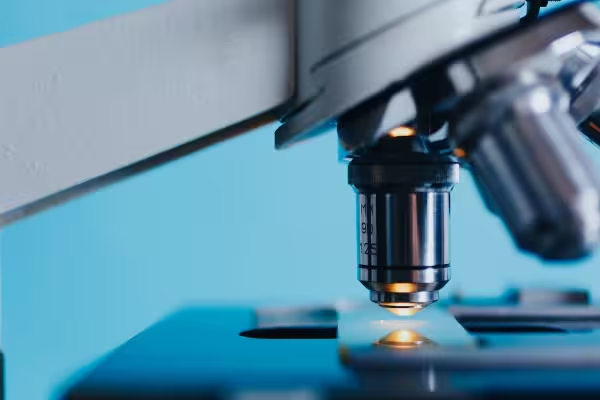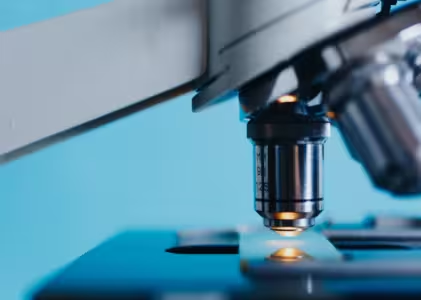Best First-Year Science Classes Rutgers – Picking the right science courses in your first year makes all the difference between a successful and an academic burnout year. Coming into Rutgers, I didn’t know just how intense any of those classes could get. You may find yourself overwhelmed, frustrated, and in doubt as to whether you are cut out for a science major if you’re not careful.
But here is the good news: with the right mindset and a plan, you positively can thrive in those classes. And believe me, someone who has been through this is going to want to read this, a guide on how to avoid common pitfalls and set yourself up for success. Now let me take you through some of the best first-year science classes at Rutgers University– right from foundational courses to expert advice on how to tackle them. Let’s get going!
The Top 4 First-Year Science Classes at Rutgers
1. General Biology
If you consider being in the field of health care, study of environmental science or research then general biology is one class that you cannot afford to miss. It ranges from cellular structure to ecosystems, but don’t let the word “general” deceive you; it’s hard.
The Rutgers curriculum covers it in depth and lays a good foundation for any future biology classes. I can remember doing my first lab assignment in this class; it was just about being thrown into a different world of scientific investigation!
2. General Chemistry
This course is pretty integral to almost all the science degrees, and Rutgers doesn’t hold any punches. General Chemistry will have you balancing chemical equations, delving into atomic theory in ways that will make high school chemistry seem like child’s play.
I found the labs here, particularly opening. It’s not all theory; you apply the knowledge in real-world circumstances. If you’re pre-med or engineering, this class isn’t optional.
3. Physics for the Sciences
Physics for Sciences: An introductory course for the student of engineering, physics, or any other physical sciences. At Rutgers, hands-on approaches were used extensively to explain abstract and basic concepts in motion and energy.
I was surprised at how that class reopens one’s eyes to various common phenomena. Hard work, but if you can adapt with critical thinking and apply math in a very applied way, you will love it.
4. Introduction to Computer Science
Living in today’s world, any student of science should know how computers work. Whether you code, analyze data or model scientific experiments, this course equips you with the basics. Intro to Computer Science at Rutgers is life-changing.
By the time it was over I was able to write programs that could solve complicated problems I use to this day!
How to Survive and Thrive in These Classes
Now that we’ve covered the classes, on to strategy. These classes aren’t cakewalks, no question about that. But here are some kinds of things I really wish someone had told me before I dove into my first year:
Don’t Skip Labs | Classes
It’s where the theory hits reality, and chemistry and biology in particular where things come alive. The easy thing to do would be to think, “I’ll just focus on the lecture material,” but the way Rutgers labs are designed is to reinforce concepts and deepen your understanding
. Furthermore, hands-on experience will drive up your grades if you’re not doing so great on exams.
Form Study Groups
These courses are overwhelming in workload. What works for me is collaboration with other classmates; it not only helps me understand the material better, but it also keeps me responsible throughout. Let me tell you-nobody does General Chemistry alone.
Make use of Rutgers Resources
There are so many resources between tutoring centres and office hours; just don’t wait to use them when drowning. When I hit the wall in Physics, meeting with my professor during his office hours completely turned things around.
Expert Opinion on The Best First Year Science Classes Rutgers
I spoke to Dr. Amy Lee of the Rutgers Biology Department about how students might best approach these foundational courses. She said,
“The most successful students are those that remain curious and ask questions. In itself, science is a question. If you’re not getting it, more than likely neither are the other students in your class. Don’t be afraid to raise your hand to engage in the material or seek out all learning opportunities available to you.”
Dr. Lee’s advice rings true. Once I started to participate more in classroom discussions and labs, my level of understanding grew exponentially. Professors at Rutgers want you to be successful, and they are there to help you do so.
Case Study on The Best First Year Science Classes Rutgers
Let me tell you about my experience with General Chemistry. It was brutal at first. It was at the first couple of weeks swimming in formulas and periodic table trivia. The thing is: I did change my study habits from short-term studying for exams to a daily review of course material, leveraging Rutgers’ tutoring resources in the process.
And finally, it clicked in place: I passed with flying colours. That experience taught me that no class is too hard to ace with the right approach.
More From Us
The Science Behind Global Warming
How Air Pollution Affects Human Health
The Role of Wetlands In Flood Prevention
Effects of Deforestation on Biodiversity
Frequently Asked Questions
1. Are these freshman-level science classes requirements for all majors in the sciences?
Yes, most science-related majors at Rutgers have General Biology, General Chemistry and Physics for the Sciences as prerequisites or requirements. Introduction to Computer Science is similarly becoming a requisite across disciplines.
2. How does that stack up against the difficulty of science in high school?
Expect a quantum leap in complexity: These courses will require much more from your time, critical thinking, and hands-on activity than ever before. And you will rise to the challenge if you study right and learn how to use your time wisely.
3. Can I take these classes if I am not majoring in science?
Of course, many non-science majors have to take these courses to fulfil the general education requirements or simply because they find the material interesting.
4. Is the lab work as intense as the lectures?
Yes, but in a good way. Labs involve real hands-on work to supplement the in-classwork. That’s where you get to apply what you will have learned from within the classroom into action.
Conclusion on The Best First Year Science Classes Rutgers
Proper first-year classes of science at Rutgers can really set the tone for your whole career- from General Biology to Computer Science, classes that are designed both to challenge you and be incredibly rewarding in and of themselves. If you put in the effort, engage in the material, and make use of the resources Rutgers provides, you’ll not only survive but thrive. I am living proof of it.
If you are still in two minds as to which class to take, then I think the best thing one can do is start with that class which falls most under what you want to do in your life. Keep in mind, no matter how impossible all these courses seem, they’re totally doable with just the right kind of mindset.


